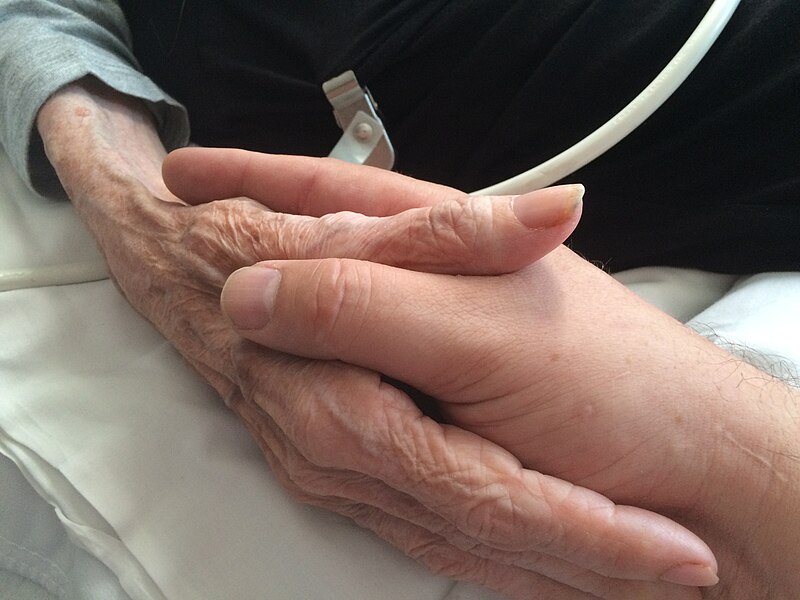Alzheimer’s Disease
Alzheimer’s Disease is the most common form of dementia found in the elderly today, directly impacting approximately forty million people. Statistics show that a new patient is diagnosed with Alzheimer’s Disease every four seconds. Although Alzheimer’s Disease is not curable, it is treatable. If the symptoms of Alzheimer’s are not caught in time, the window of opportunity to properly treat the disease in order to delay its devastating effects and possibly even prolong life may be missed.
What Nursing Homes Should Do
It is essential for caregivers in nursing homes to take the time to check in with patients regularly. This way, caretakers can spot and chart symptoms of Alzheimer’s Disease in order to catch it in time to implement successful treatment. Unfortunately, nursing homes are frequently understaffed due to monetary interests on behalf of administrations. Nursing homes often try to cut corners in order to save money in a “penny-wise, pound foolish” gesture of gross mismanagement.
What is Alzheimer’s Disease?
Alzheimer’s Disease is a condition that causes brain functions to shut down in stages. It is a progressive disease that starts attacking areas of the brain that store short term memory. As the condition manifests, more portions of the brain deteriorate. Eventually, Alzheimer’s disease continues to degrade the brain until it shuts down vital bodily functions, leading to death.
Impact of the Disease
Alzheimer’s Disease is a serious condition and its progression is ultimately fatal. Understanding how Alzheimer’s functions within the brain can help patients and their families prepare for the trajectory of changes and the impact they will have on memory, emotions, and bodily functions. Understanding Alzheimer’s Disease can help mitigate the fear factor of facing what would otherwise be an unknown and terrifying journey. Helping patients and their families understand the kind of treatments that are available to people suffering with Alzheimer’s is something your physician can help with.
The Stages of Alzheimer’s
Alzheimer’s happens in several basic stages. First, there is a loss of short term memory. Second, the disease targets the areas in the front of the brain that are responsible for generating logical thought patterns. Stage three targets the emotional center of the brain, causing drastic and sudden mood swings. Stage four hits the top of the brain, triggering paranoia and hallucinations, followed by stage five, which attacks the long-term memory. Finally, at stage six, the center of the brain governing the heart and breathing mechanisms of the brain shut down, which leads to death.
Some Symptoms of Alzheimer’s Disease
- Insomnia
- Short and long term memory loss
- Extreme mood swings
- Confusion
Medically Speaking, What Causes Alzheimer’s Disease?
Alzheimer’s disease is caused by anomalies in brain tissues. There are two primary types of aberrations in brain tissue development that are responsible for the progression of the disease: beta amyloid clumps formed by deformed protein molecules, and neurofibrillary tangles.
Beta amyloid clumps develop because of mismatched enzymes pairing with proteins that are essential for communication between brain cells. Essentially, pairing with the wrong enzyme causes proteins to be stripped of the fatty protective layer that buffers cells, which results in the clumping together of proteins into sticky clumps of “plaque.” The buildup of protein cluster plaques in the brain triggers an immune response that sends a message signaling the destruction of compromised nerve cells. This blocks neural transmissions in the brain and leads to the degradation and deterioration of cognitive abilities and other functions of the central nervous system.
Neurofibrillary tangles are the other primary culprit in promoting Alzheimer’s Disease. Tau proteins help support the infrastructure of the channels in the brain that provide nutrients to neurons. Alzheimer’s Disease causes Tau proteins to become tangled, collapsing the necessary channels that transfer nutrients to brain cells, weakening them until they die.
Sadly, There is No Cure for Alzheimer’s Disease
But there are ways of slowing down the progression of the disease so that people coping with Alzheimer’s have hope of living longer without losing their mental faculties as quickly as they might without receiving treatment.
One option for treating Alzheimer’s Disease is to attempt to slow down the breakdown of acetylcholine in the brain. Acetylcholine is depleted in Alzheimer’s patients due to the death of the nerve cells that create them.
Another avenue for managing Alzheimer’s is plaque vaccinations. By eliminating plaque buildup in the brain, deterioration of the brain brought on by the disease can be stymied and slow down its process of killing off the brain and body.
Related Articles by Ed Smith:
- Dementia
- Over Medicating Nursing Home Patients
- Rights of Nursing Home Residents
- Dehydration
- Decubitus Ulcers – Bed Sores
- Physical Abuse in the Nursing Home
- How a Nursing Abuse Lawyer Can Help You
Sacramento Nursing Home Negligence and Abuse Lawyers
I’m Ed Smith, a Nursing Home Abuse Attorney in Sacramento If you are suffering from Alzheimer’s Disease, or if you are the family member of a loved one with Alzheimer’s Disease, there is hope. Catching the disease in time can have substantial mitigating effects that will potentially diminish the heartbreak of Alzheimer’s. If you, someone you love, or a member of your family have been the victim of undiagnosed Alzheimer’s disease as a result of nursing home neglect, please contact my law office and ask for Ed Smith, at (916) 921-6400 or (800) 404-5400.
Before you call my office, take a moment to browse through my client reviews on Yelp, Google Plus, and Avvo.
I am a member of the Million Dollar Advocates Forum, a distinguished group of attorney’s who have been awarded settlements of a million dollars or more.
Image Attribution: Wikimedia commons
:db

